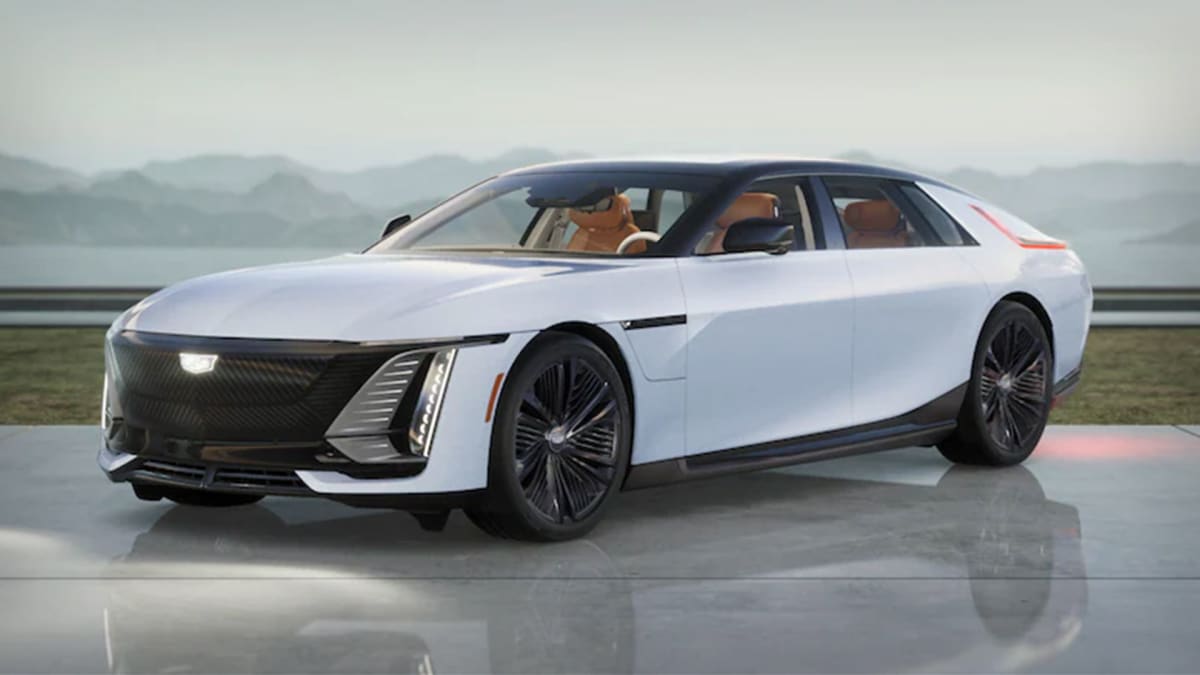
Alfred E. Neuman, the iconic cover boy for the humor magazine "Mad", lived by the motto "what, me, worry?"
Yes, the character did not actually exist, but one could argue that his query has some real world implications.
Economic indicators are pointing to tough times ahead, yet some consumers are still shelling out serious coin for extremely pricey items.
On Oct. 17, luxury automaker Rolls Royce unveiled the Spectre, its first fully-electric car.
The Spectre, which is slated to be delivered toward the end of 2023, is the first step in the carmaker's plan to make its entire product portfolio fully-electric by 2030.
"This is the start of a bold new chapter for our marque, our extraordinary clients and the luxury industry," Rolls Royce CEO Torsten Müller-Ötvös said in a statement.
You may remember that Müller-Otvös caused a bit of a stir back in January when he suggested that Covid-19-related deaths had helped spark a jump in sales of the luxury vehicle.
'The Most Perfect Product'
But he has since moved on from that little controversy and now touts Spectre as "the most perfect product that Rolls-Royce has ever produced.”
Perfection doesn't come cheap, of course, as the Spectre will cost about $400,000.
This may sound a bit steep, but Muller-Otvos told CNBC said more than 300 U.S. buyers have already put down deposits for Rolls-Royce’s first electric vehicle prior to its unveiling.
If that's a little too rich for your blue blood, then maybe we can interest you in the model-year 2024 Cadillac Celestiq, a handmade electric luxury car that will be base-priced at just over$300,000.
The Celestiq will be available only by request and clients will need to advance a "significant deposit" to initiate the process.
"Consumers are quite satisfied with their present cars," said Jean-Noël Kapferer, marketing professor at HEC Paris. "For the immediate future they want the same cars but powered differently. They want a real Cadillac with batteries instead. Same for Rolls Royce. The price then should be the same ."
As for the manufacturers, Kapferer said "the status of luxury brand in the automotive market commands to post prices which have no relationship with the production costs, but with the consumers' willingness to pay."
These big-ticket vehicles are coming down the road at rather challenging time.
'Batten Down the Hatches'
The economy shrank 1.6% in the first quarter and 0.6% in the second. Consumer prices soared 8.2% in the 12 months through September, and the Fed has lifted interest rates by 3 percentage points since March.
Just about every economist you can shake a piechart at says a recession is on the way.
JPMorgan Chase (JPM) Chief Executive Jamie Dimon warned that inflation, soaring interest rates and the Ukraine war will likely put the U.S. "in some kind of recession," and Amazon's (AMZN) Jeff Bezos, the second richest man in the world, is telling people "to batten down the hatches."
So what gives?
"The global wealth gap widened throughout the past few years as the pandemic has had disproportionately negative effects on lower-income consumers," said Jenna Drenten, associate professor of marketing in the Quinlan School of Business at Loyola University Chicago.
"Launching new luxury vehicles that retail for hundreds of thousands of dollars is evidence of the widening wealth gap," she added.
Drenten said these cars "also give wealthy consumers a bit of an out for justifying such spending."
Nice Ride
"A wealthy consumer can drive around in a $400,000+ electric vehicle, feeling pride in doing good for the environment, while also largely ignoring the potential recession and economic inequality," she said.
And people aren't just spending top dollar on cars.
While Manhattan's rental market is starting to chill, Bloomberg reported that prices for the most-expensive apartments are still on the rise.
Travel by private jet in the U.S. was up for the first eight months of 2022 to 2.76 million aircraft departures, or 12.3%, over pre-pandemic departures in 2019, the Robb Report said.
The personal luxury goods market is seeing a V-shaped rebound from its worst dip in history, according to a study by Bain & Co.
“Despite significant macro-economic challenges, including hyperinflation, slowing GDP growth and the Russia-Ukraine conflict, the personal luxury goods market proved resilient once again,” Claudia D’Arpizio, lead author of the study, said in the study.
'Conspicuous Consumption'
“Luxury goods brands started this year showing especially strong growth while also playing a leading role in the world’s ongoing sustainable and digital transformation," she added.
In addition to growth delivered by traditional luxury products, the Bain report said, digital assets and the virtual world—the metaverse, social media and gaming—will play an increasingly relevant role in luxury brands’ value propositions.
By the end of 2030, digital assets and the metaverse will comprise 5-10% of the luxury market
"What you are seeing suggests to me that conspicuous consumption among the very wealthy continues apace, even as the economy poses challenges for ordinary people," said Bruce G. Carruthers, a sociology professor at Northwestern University.
Decades of increasing economic inequality, he added "mean that there are some extremely comfortable people who can continue to enjoy the benefits of wealth--fancy cars, luxury apartments, etc.-- right through the economic cycle of booms and busts."
Or as Alfred E. Neuman would say, "what, me, worry?"







